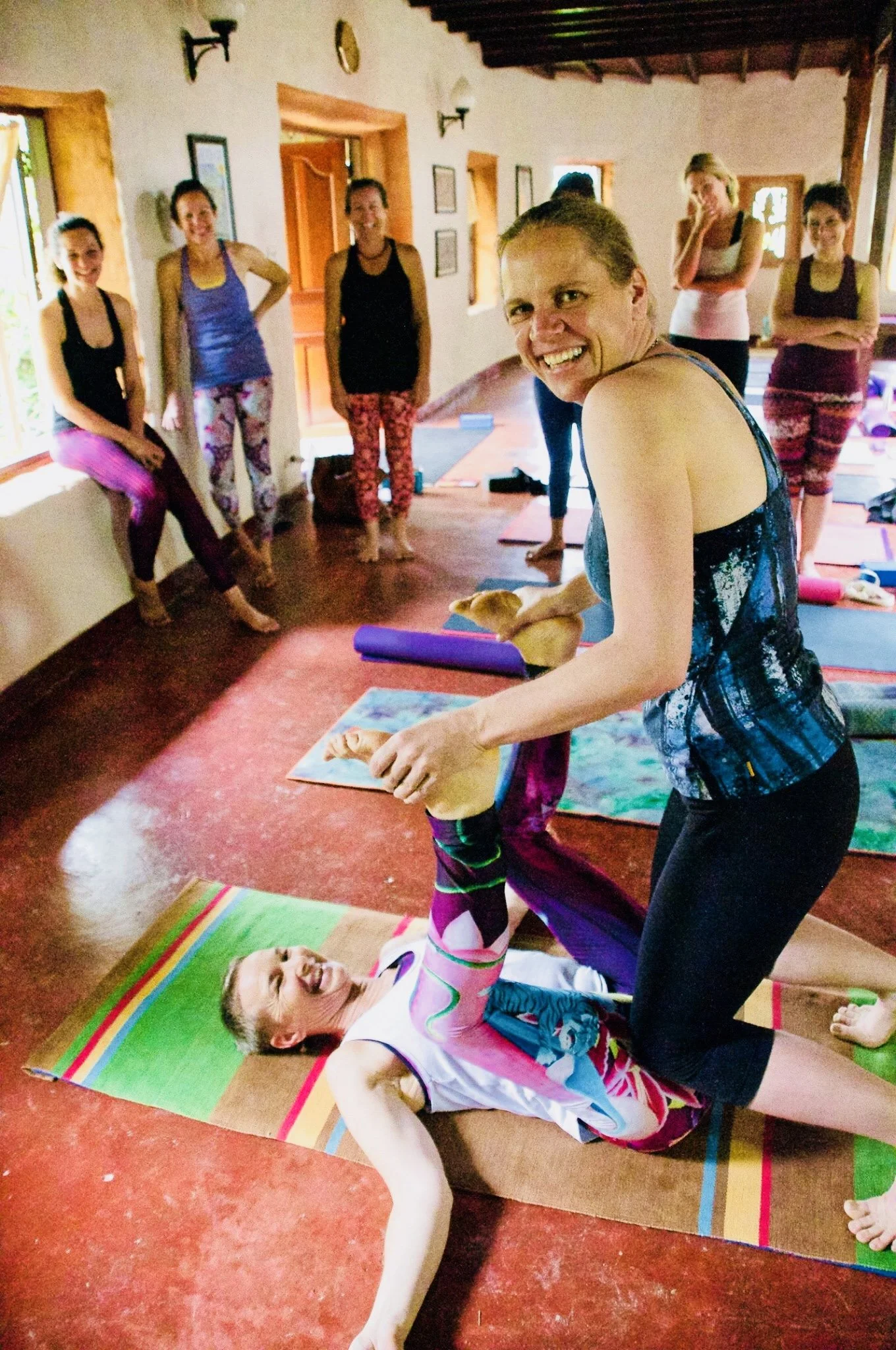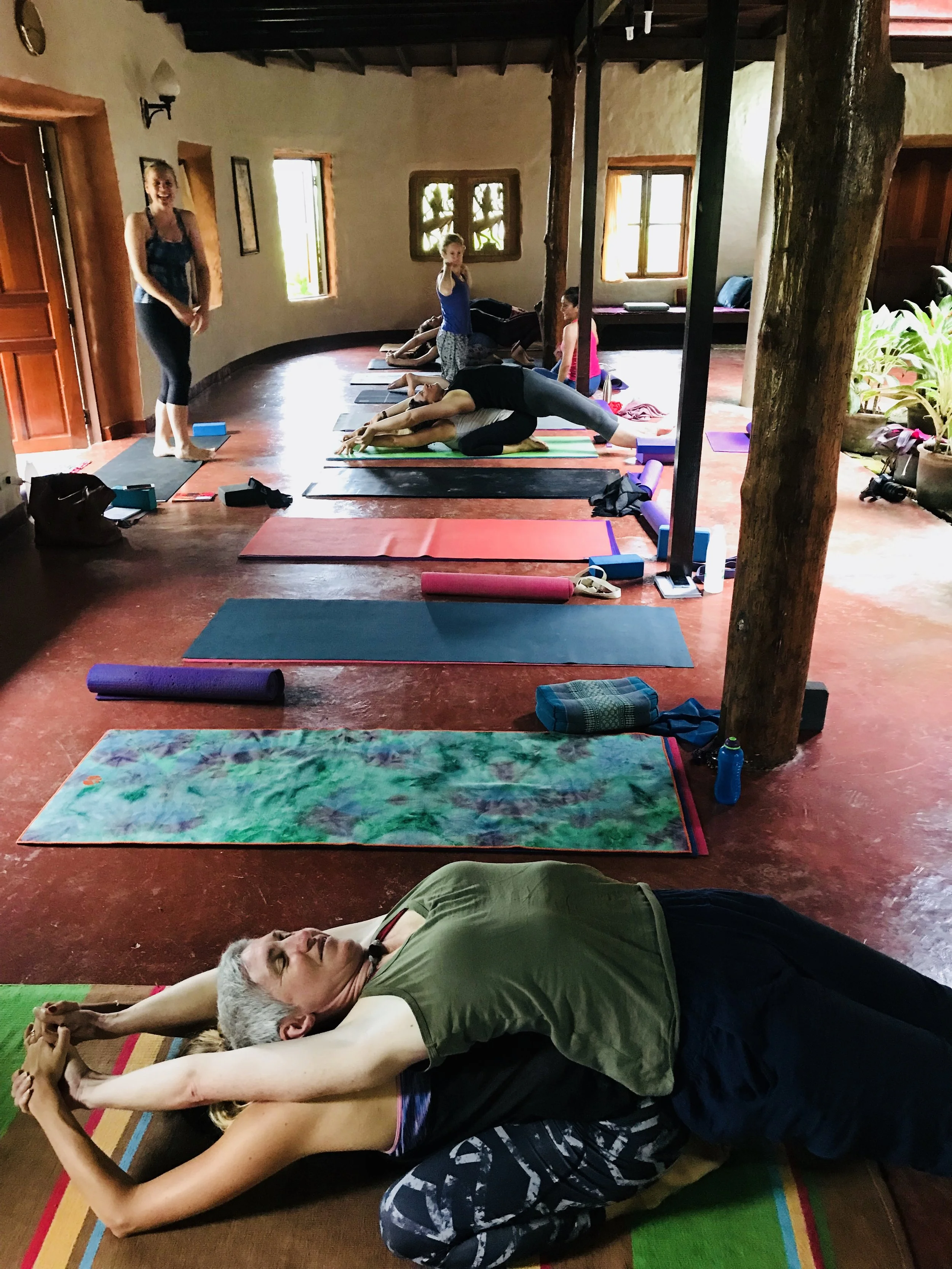I’m always rethinking yoga—here’s why.
A few of you have asked for my thoughts on a recent Compass episode, "Yoga is Medicine," (ABC iView) featuring a yoga teacher and her students. Like me, this teacher has roots in both the Iyengar and Ashtanga traditions. And like many of you, I had some reactions to her intense adjustments—things I no longer do in my classes. But the episode sparked a deeper reflection for me, one that I thought I'd share.
I’ve been practicing yoga for decades, and I’ve changed my mind about a lot. That’s what growth is, right? If we’re paying attention, listening to other perspectives, we evolve. And boy, has my journey been a series of twists and turns—some of them physical, most of them mental.
My dance with yoga and the "gurus".
In the 90s, I dabbled in both Ashtanga and Iyengar, much like the teacher in the Compass episode. Back then, the practices were intense. I remember the adjustments that were borderline brutal—Jois and Iyengar didn’t hold back. Now, with the benefit of hindsight, the footage from that era is hard to watch. I didn’t fully subscribe to the "guru mentality" even back then—my own skepticism kept me from diving too deep, thankfully.
But I was there. I saw it. I felt the pressure to perform, to achieve, to bend. I was lucky. Others weren’t.
It’s not just yoga, though, is it? We see this abuse of power in so many fields—Simone Biles, for example, suffered terribly under those who were supposed to protect her in gymnastics. It happens in acting, music, the corporate world—anywhere there’s a figure of authority who demands blind reverence. That "guru worship," that unquestioning loyalty... it’s dangerous.
The teacher on Compass: my thoughts.
This teacher on Compass—she’s intense, yes. Her adjustments are nothing like what I offer in my classes, but I could see that her students trust her. One, a breast cancer survivor, credited her daily 1:1 yoga sessions for aiding her recovery after chemo. Another student, who had survived a horrific accident, shared how yoga helped him on his path to healing after the medical professionals had already done their remarkable work. It struck me—there’s no binary here. There’s no clear right or wrong.
Yoga is a journey. It was for them, and it has been for me too. But there was a time in my journey when I felt betrayed by yoga. I had sustained injuries I wasn’t warned about, and the unspoken message seemed to be that if you couldn’t do a pose, you were somehow the problem. I remember watching those at the front of the class—students who could easily demonstrate the most difficult poses—being revered by the teachers. I couldn’t help but question: was this truly healthy for everyone in the room?
What frustrated me wasn’t jealousy, as I sometimes found myself among those demonstrating advanced poses. It was the underlying message that if you couldn’t perfect a pose, you were "less than." That pressure didn’t sit right with me. It wasn’t until I stepped back and explored different methods that I found a healthier, more inclusive path forward.
What I learned from "outside" yoga.
I sought out mobility trainers, studied anatomy with science experts—people with real credentials. And guess what? That helped. A lot. But it was also boring. Clinical. Missing something.
That’s when I realised yoga itself wasn’t the problem. It was the culture around it, the dogma that had built up over decades. And so, I came back to yoga. But this time, I brought with me everything I had learned: the science, the biomechanics, and—most importantly—a different mindset.
So, when I see a teacher doing things differently from me, like in this Compass episode, I don’t judge too quickly. Is she hurting her students? From what I saw, no. Is she helping them? It looks like she is—she knows them well, and they practice together frequently. Do I agree with everything she does? No, but that’s the beauty of it—yoga is vast. It’s big enough to hold all of us, our differences, and our experiences.
Where I stand now.
I don’t subscribe to the "guru mentality." It’s not for me. But I also don’t judge those who find value in it, as long as no one is being harmed—physically, mentally, or financially. There are countless examples of questionable teachers, like Bikram, still teaching today. But not all yoga teachers are the same. We all evolve differently.
For me, yoga isn’t about contorting yourself into a shape that’s deemed perfect. It’s about listening to your body, finding your shape, and trusting that, over time, with patience and dedication, you’ll transform—mentally and physically.
And if you ever feel disconnected from yoga, like I did, remember it’s okay to step away, explore other methods, and come back with a fresh perspective—should you come back at all. It’s not about following one path; it’s about creating your path.


